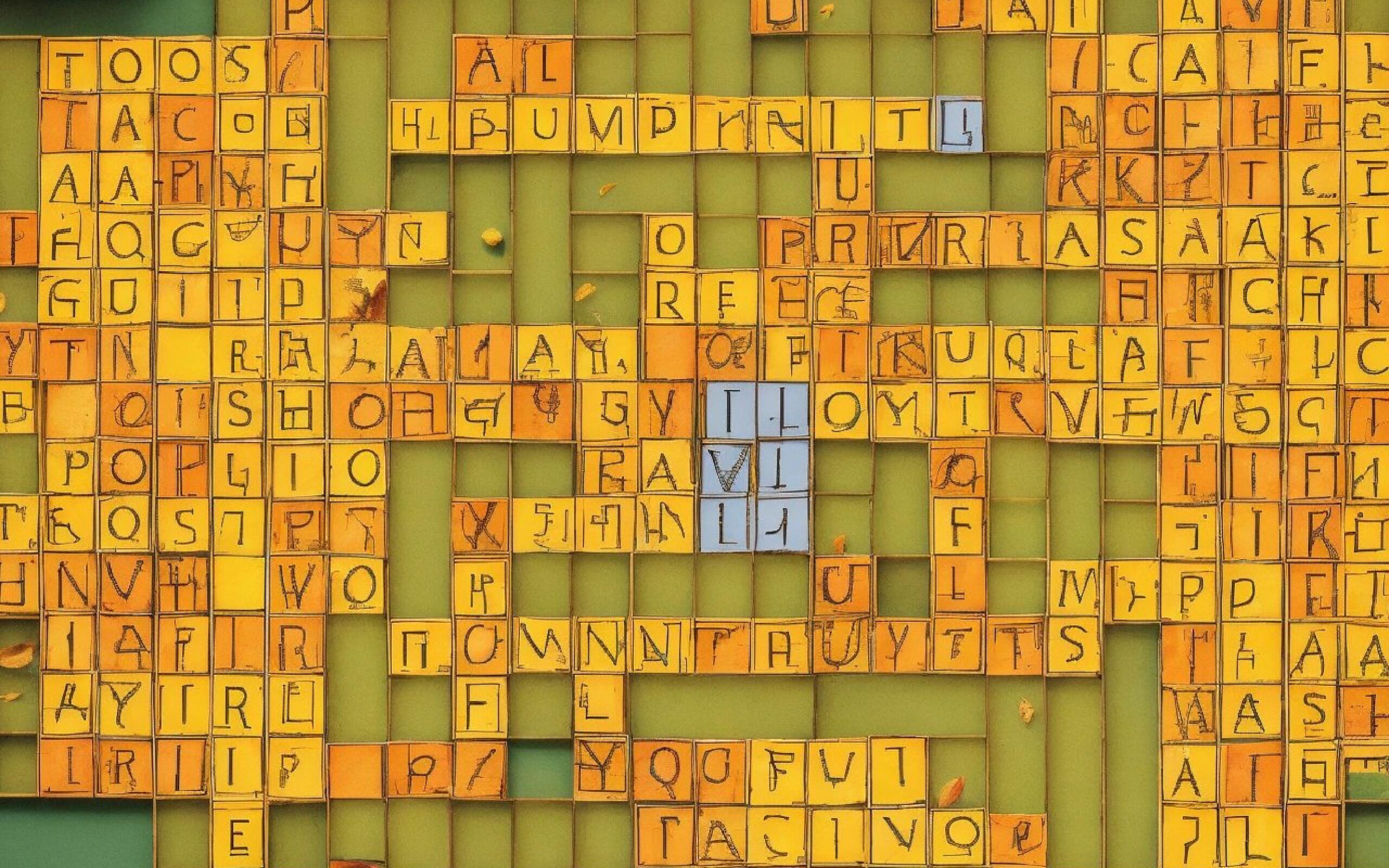A wonderful blend of challenge, vocabulary, and humor are crossword puzzles. There’s no doubting the gratification of completing that last square, regardless of your daily crossword habit or casual solver who likes to play about when time permits. Every puzzle solver, nevertheless, is aware of the aggravation caused by coming upon a clue that stops you cold-blooded. “Sinister Gaze” is a hint that confounds and bewilders me. But just what does it mean? How would you solve it, and why does it trip even the most skilled problem solvers? Let’s explore techniques to enable you to solve the “Sinister Gaze” clue confidently and dig deeply into the realm of crossword puzzles to find the mystery behind them.
Understanding Crossword Puzzles and Their Popularity
Crossword puzzles are a phenomenon of culture, not only a hobby. Crossword puzzles, which first emerged in the early 20th century, have become a popular pastime for millions of people all around. A crossword’s appeal resides in its capacity to test your brain, increase your vocabulary, and provide simultaneous entertainment value. This game of words challenges your knowledge and capacity for original thought and creative expression. Though they appeal greatly, crossword puzzles may be tricky, particularly when confronted with clues like “Sinister Gaze” that seem virtually unbreakable.
What Makes Clues Like “Sinister Gaze” So Challenging?
Why is “Sinister Gaze” a challenging clue? The way crossword clues are created reveals the solution. Experts in language and love, constructors—developers of crossword puzzles—enjoy experimenting with words in novel ways to trip solvers off track. They frequently employ puns, multiple meanings, and wordplay to do so. A hint like “Sinister Gaze” is about how those words could be distorted, interpreted, and recreated in the framework of a problem, not only about their actual meaning.
The word “Sinister Gaze” initially seems simple. Usually meaning something terrible or scary, “sinister” is “gaze,” a look or stare. All taken together, they show someone glaringly menacing. In the realm of crossword puzzles, though, things are seldom so straightforward. Constructors often employ familiar terms in unusual ways to guide solvers down a rabbit hole of misinterpretation. Crossword puzzles are so exciting and, occasionally, infuriating because of this deft language manipulation.
Breaking Down the Meaning of “Sinister Gaze”
Dealing with a clue like “Sinister Gaze,” one might break out the words and analyze all conceivable interpretations. Let us start with “sinister.” Though usually connected with harmful or dangerous behavior, “sinister” also has other connotations. Historically and heraldically, “sinister” describes the left side. Often employed in cryptic crossword puzzles, this less frequent term adds a usually missed difficulty.
The more straightforward word “gaze” usually refers to glance steadily or intensely. Combined with “sinister,” it implies something more disturbing—a stare full of intent or hate. Crossword phrases would suggest, however, that this mix might not indicate a literal meaning at all. The difficulty is realizing when the clue’s surface-level interpretations are guiding you off course.
The Importance of Wordplay in Crossword Clues
Crossword puzzles test knowledge as much as they do wordplay. Constructors love creating hints that might be understood in several ways by combining synonyms, anagrams, and puns. For a hint like “Sinister Gaze,” you might be tempted to consider synonyms for “sinister” (such as “evil” or “menacing”) and “gaze” (such as “stare” or “leer”). These simple responses could, however, not match the letter count or intersecting words of the problem, which would compel you to probe further.
Dealing with these kinds of hints calls for an awareness of wordplay. “Sinister Gaze,” for example, might suggest anything as essential as “leer,” a term that connotes both a sly glance and fits the notion of a sinister gaze. But it’s easy to get caught up in one interpretation and overlook the correct answer without looking at all conceivable synonyms and examining the more extensive background of the issue.
How to Approach Solving “Sinister Gaze” Clues
Given a clue like “Sinister Gaze,” the secret is to remain open-minded and avoid being misled by the apparent. Start by considering the fundamental meanings of every word, then explore any less common or metaphorical interpretations. Is “sinister” employed in a conventional sense, or is it suggesting something more mysterious, as its historical meaning of “left” suggests? Is “gaze” suggesting something more symbolic, or is it a literal look?
Examining the surrounding hints and answers is another intelligent tactic. Often, crossword puzzles are made with linked clues; answering one can give hints to others. Use the letters you have filled in from intersecting words as references to assist you in generating several responses. Among the most valuable instruments in a solver’s toolkit, cross-checking lets you verify or rule out possible answers depending on the general puzzle structure.
Common Answers for “Sinister Gaze” Crossword Clues
Crossword puzzles vary widely in style and difficulty. Hence, the “Sinister Gaze” solution could differ depending on the journal or constructor. Still, some often-used responses include:
Leer: This may be the best direct response since it fits the usual word length observed in crossword puzzles and captures the concept of a frightening appearance.
Glare: Another appropriate response, “glare,” also suggests an angry or intimidating stare, which fits the meaning of the clue rather perfectly.
Scowl: This word suggests wrath and menace, amplifying the appearance’s negative aspects.
Evil Eye: In some riddles, particularly those with longer answers, “evil eye” could convey the core of a nasty glance.
These responses emphasize the need for context and puzzle type since only some responses will fit every crossword. They emphasize adjusting your thoughts depending on the particular crossword you are working on. Occasionally, even the same clue can have different answers in various puzzles.
Why Context Matters: Not All Puzzles Are the Same
Remember that the type of crossword you tackle will determine whether the same clue yields various answers. A “Sinister Gaze” puzzle in a typical American-style crossword, for instance, would have a pretty straightforward response like “leer” or “glare. But in a cryptic crossword, the same clue could have secret meanings that call for you to go beyond the literal and investigate every conceivable wordplay direction.
Knowing the Publication helps one understand the expected kind of response. Whereas The Guardian’s cryptic riddles frequently feature more humorous and sophisticated wordplay, the New York Times is renowned for its brilliant but fair hints. Knowing the style of a newspaper will enable you to predict the expected types of responses and boost you when confronted with challenging clues.
Crossword Strategies to Crack Tough Clues
If you find a challenging hint like “Sinister Gaze,” there are various ways you may increase your odds of succeeding. Searching the puzzle for trends is among the most efficient ways. Exist recurring themes, comparable hints, or familiar word lengths that would suggest a specific response? Often, paying close attention to these elements reveals secret links that enable puzzle solvation.
Using the process of elimination is another excellent strategy. Jot down any potential responses that fit the clue first; next, narrow the choices using the intersecting terms. Cross off the list and proceed to the next prospect if an answer does not match the letters you now possess. This thorough technique helps you avoid becoming mired in one solution that sounds appropriate but finally fails the puzzle.
The Role of Language in Creating Cryptic Crossword Clues
The beauty of crossword puzzles is found in the many language choices. Constructors deftly, shockingly, and occasionally outrightly deviously change words. They employ homophones, secret words, reversals, and even unusual vocabulary to create hints that surprise the solver. In the case of “Sinister Gaze,” it’s not only about knowing the definitions of the words; it’s also about realizing how they may be twisted and remade to fit the crossword pattern.
Language constantly changes; crossword puzzles may mirror this change by using fresh slang, cultural references, and contemporary idioms. Crossword puzzles are not only static lists of words; they’re alive, breathing puzzles that evolve because of their dynamic character. Maintaining current trends and broadening your vocabulary would be pretty helpful for a solver.
The Connection Between “Sinister Gaze” and Cryptic Clues
Cryptic crossword puzzles are one kind of puzzle where clues are meant to mislead—with double meanings and wordplay taking the front stage—. A hint like “Sinister Gaze” could have layers of interpretation in these challenges that transcend a basic definition. For instance, “sinister” can refer to the left side, while “gaze” might be a component of a wordplay trick, including an anagram or secret word.
Using deceptive punctuation is a typical cryptic crossword trick that could alter the whole meaning of a clue. A cryptic clue for “Sinister Gaze” might be something like “Left look that’s evil?” where “left” functions as a secret signal for “sinister,” and the general connotation indicates something terrible. Because of this degree of complexity, cryptic clues are fulfilling but challenging.
Using Crossword Tools to Your Advantage
Although many solvers take great satisfaction in finishing problems unaided, there is no guilt in employing tools to assist you throughout. When you get caught on a clue, community forums, online solvers, and crossword dictionaries can offer great help. Particularly helpful for riddles like “Sinister Gaze,” websites like Crossword Solver and OneAcross have databases of probable answers that may be filtered by letter count or specific recognized letters.
Reddit’s r/crossword or specific crossword communities provide forums where solvers may share ideas, talk about challenging clues, and offer hints without revealing the complete answer. Learning new techniques and broadening your crossword-solving abilities depend much on these materials.
Common Pitfalls When Solving “Sinister Gaze” and Similar Clues
When dealing with challenging crossword clues, one often falls into common traps. Overanalyzing is a common problem; occasionally, even if it doesn’t fit at first look, the simplest solution is the right one. Likewise, depending too much on one possible solution could mislead you. Remember that crossword puzzles are as much about the trip as they are about the destination; have an open mind.
Another typical error is ignoring the larger puzzle context. Every clue fits a greater whole, so the puzzle’s topic can occasionally provide crucial hints. For example, responses connected to ominous or eerie ideas can be more likely if the puzzle has a gloomy or Halloween-themed title.
The Joy of Mastering Challenging Clues
Crossword puzzles are beautiful in that they satisfy one to overcome challenges. Like “Sinister Gaze,” every difficult clue represents presentence to test your intellect, pick up fresh knowledge, and savor the excitement of that “aha!” moment when the solution finally falls into place. Completing puzzles is more than just filling in boxes; it’s about interacting with language in an entertaining, interactive, and endlessly gratifying manner.
Accepting the challenges of crossword puzzles will help you, regardless of experience level, to develop a closer respect for language’s subtleties. Therefore, remember that every problem offers a chance for development as a solver, increase your vocabulary, and appreciate the humorous side of words the next time you encounter an impossible hint.
Conclusion
Learning to solve crossword puzzles is a trip full of turns and many “aha!” moments. Clues like “Sinister Gaze” are meant to push you, encourage innovative thinking, and broaden your language knowledge. Even if they can be annoying, once solved, they are fulfilling. Thus, welcome the challenge, concentrate on training, and remember that every problematic hint is a chance for solver development.
FAQs
What is a standard answer for the “Sinister Gaze” crossword clue?
Typical responses might be “leer” or “glare,” but the particular setting and theme of the puzzle will determine the response.
How do crossword creators develop tricky clues like “Sinister Gaze”?
Creators combine wordplay, synonyms, and cultural references to create hints that challenge and entertain solvers.
Can context change the meaning of “Sinister Gaze” in puzzles?
Indeed, the perception of the clue can be much influenced by the puzzle’s setting and the publishing approach.
Are there any tools that can help me solve crossword clues faster?
Indeed, there are community forums, crossword dictionaries, and online solvers with clues and insight capabilities.
Why are some crossword clues deliberately misleading?
Misleading hints are a mainstay of crossword puzzles. They challenge solvers and inject an element of surprise into the solving process.




